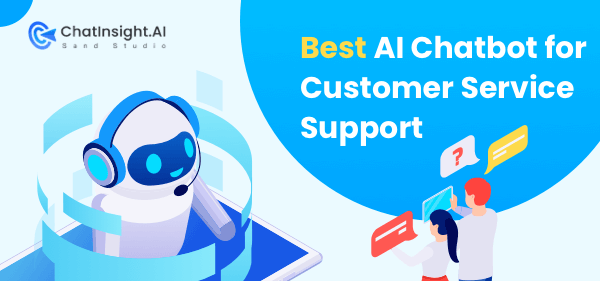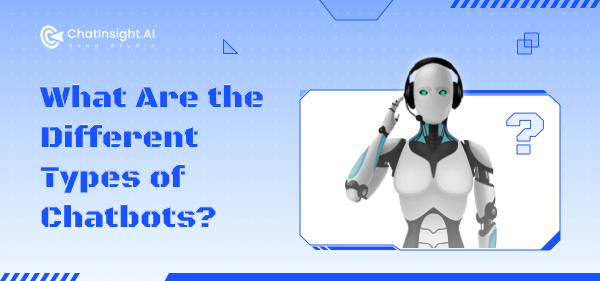Top 8 Conversational AI Use Cases
Conversational AI represents a significant technological advancement, embodying systems capable of engaging in human-like dialogue. This AI variant has become integral to the current technology landscape, driven by advances in natural language processing (NLP) and machine learning. By simulating human conversation, conversational AI is revolutionizing multiple industries, from customer service to healthcare, by offering enhanced customer engagement, efficiency in processes, and tailored experiences.
Businesses utilize chatbots and virtual assistants to provide 24/7 support, answer queries, and guide users through complex processes, significantly improving response times and customer satisfaction. Additionally, in sectors like healthcare and banking, conversational AI facilitates personalized advice, thereby elevating the customer experience to new heights. This transformation is not just about automation; it's about creating more intuitive, human-centered interactions between technology and users.
1Customer Service and Support
In the realm of customer service and support, conversational AI is a game-changer. Automated customer support via chatbots and virtual assistants has revolutionized how businesses handle inquiries, offering round-the-clock assistance and efficiently solving problems without needing human intervention. This automation not only streamlines operations but also significantly enhances customer satisfaction. Furthermore, conversational AI excels in delivering personalized customer experiences. By analyzing previous interactions, preferences, and purchase history, it provides customized recommendations and support, making the customer feel understood and valued. These advancements underscore conversational AI's pivotal role in transforming customer service, making it more efficient and personalized than ever before.
2Sales and Marketing
In sales and marketing, conversational AI plays a critical role in optimizing engagement and conversion strategies. For lead generation, it initiates contact with potential customers, efficiently qualifies leads, and seamlessly guides them through the sales funnel, enhancing the effectiveness of sales campaigns.
Additionally, conversational AI excels in providing personalized product recommendations. By analyzing customer interactions and purchase history, it identifies and suggests products and services that are most relevant to the customer's needs and preferences. This targeted approach not only improves customer experience but also boosts sales by making recommendations that customers are more likely to appreciate and act upon.
3Human Resources and Recruitment
In human resources and recruitment, conversational AI significantly streamlines operations and enhances the employee experience. It automates the initial recruitment stages, efficiently screens candidates, and organizes interviews, saving valuable time and resources. This technology ensures that only the most suitable candidates progress, making the recruitment process more efficient.
Moreover, conversational AI plays a crucial role in employee onboarding, offering a personalized guide for new hires. By answering questions and supplying essential resources through an interactive, conversational interface, it facilitates a smoother transition for employees, laying the foundation for a successful and engaging work experience.
4Healthcare
In healthcare, conversational AI is revolutionizing patient care and administrative efficiency. It facilitates patient engagement through triage, symptom assessment, and personalized health advice, enabling timely and tailored patient support. Additionally, conversational AI streamlines appointment management by scheduling visits, sending reminders, and conducting follow-ups. This not only enhances patient compliance but also optimizes healthcare providers' schedules, reducing wait times and improving overall service quality. By automating these processes, conversational AI significantly improves the accessibility and efficiency of healthcare services, contributing to better patient outcomes and satisfaction.
5Education
In education, conversational AI is transforming the learning environment and administrative efficiency. It delivers personalized learning experiences by adapting to individual student needs, preferences, and learning styles, while also providing instant feedback to foster a more engaging and effective learning process. Additionally, conversational AI greatly assists with administrative tasks, streamlining processes such as enrollment, schedule planning, and answering frequently asked questions. This not only reduces the workload on educational staff but also enhances the student experience by providing quick and accessible information, thereby improving overall educational outcomes.
6Financial Services
In the financial services sector, conversational AI is revolutionizing how customers manage their finances and how institutions enhance security. It serves as a personal finance assistant, offering advice, tracking spending, and managing accounts efficiently, enabling users to make informed financial decisions. Moreover, conversational AI plays a crucial role in security through its ability to monitor transactions, identify unusual activity, and promptly alert customers, thereby mitigating the risk of fraud. This proactive approach not only protects customers but also reinforces trust in financial institutions, showcasing the pivotal role of conversational AI in modernizing and securing financial services.
7Retail and E-commerce
In retail and e-commerce, conversational AI is enhancing the shopping experience and streamlining post-purchase support. It acts as a shopping assistant, helping customers locate products, offering detailed information, and simplifying the purchasing process. This interactive assistance improves customer satisfaction by making shopping more convenient and personalized. Furthermore, conversational AI efficiently handles post-purchase inquiries, such as order tracking, returns, and exchanges, providing timely and accurate information. This reduces customer service workloads and improves response times, demonstrating conversational AI's critical role in modernizing retail operations and elevating the customer journey.
8Travel and Hospitality
In the travel and hospitality industry, conversational AI is transforming how travelers plan trips and interact with services. It offers personalized travel suggestions, books flights and accommodations, and provides essential travel assistance, making trip planning seamless and tailored to individual preferences. Furthermore, conversational AI enhances guest experiences in hospitality by facilitating hotel bookings, delivering local recommendations, and efficiently addressing inquiries. This ensures guests receive prompt and personalized support, significantly improving their overall experience. By streamlining these processes, conversational AI not only elevates customer satisfaction but also drives operational efficiency, marking a pivotal shift in the travel and hospitality sector.
Conclusion
Conversational AI has demonstrated its transformative impact across diverse industries, significantly enhancing customer engagement, streamlining processes, and personalizing experiences. As technology evolves, the future of conversational AI promises even greater advancements, poised to revolutionize interactions between businesses and customers further. Its ongoing integration signifies a shift towards more intuitive, efficient, and tailored communication, marking a pivotal evolution in the way services and support are delivered.







Leave a Reply.